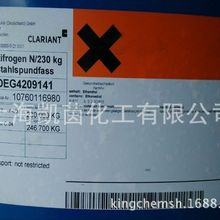
WASHINGTON — The Senate Finance Committee has drafted a bipartisan bill to mitigate drug shortages by rewarding hospitals for business practices that ensure an adequate supply of drugs.
Drug shortages have been a persistent problem for years, and they’re worse than ever, according to a recent report by the American Society of Health-System Pharmacists. Shortages are primarily a problem for hospitals and doctors who regularly administer drugs, including oncologists who have been running out of common chemo drugs. Generic injectables account for 67% of shortages, and more than half of drugs in short supply cost less than $1 per unit, according to the Finance Committee.
advertisement
Hospitals band together to negotiate drug prices by hiring group purchasing organizations. The biggest three GPOs are estimated to control about 90% of the market for drugs that hospitals buy. Finance Chair Ron Wyden (D-Ore.) said those GPOs can drive prices down so low that manufacturers stop making certain drugs or can’t afford to maintain their facilities, which then leads to manufacturing interruptions. Drugmakers also say GPOs can also be fickle, switching from one manufacturer to another over small savings, leaving drugmakers without the certainty they need to commit to making large volumes of product.
STAT+ Exclusive Story
Already have an account? Log in


This article is exclusive to STAT+ subscribers
Unlock this article — plus daily intelligence on Capitol Hill and the life sciences industry — by subscribing to STAT+.
Already have an account? Log in
Already have an account? Log in
Monthly
$39
Totals $468 per year
$39/month Get StartedTotals $468 per year
Starter
$30
for 3 months, then $39/month
$30 for 3 months Get StartedThen $39/month
Annual
$399
Save 15%
$399/year Get StartedSave 15%
11+ Users
Custom
Savings start at 25%!
Request A Quote Request A QuoteSavings start at 25%!
2-10 Users
$300
Annually per user
$300/year Get Started$300 Annually per user
View All Plans
Get unlimited access to award-winning journalism and exclusive events.
Subscribe Log InNext article: Medicare proposal to cover medical devices draws a mixed reaction















